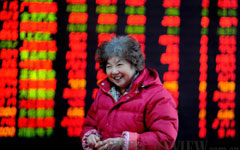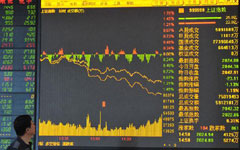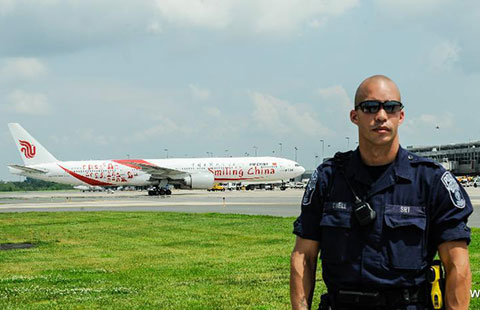MSCI says it won't add A shares to Emerging Markets Index
By Xie Yu in Shanghai (China Daily) Updated: 2014-06-12 06:54Hopes for inbound liquidity wave dashed by firm's announcement
Investors in Chinese stocks got a bit of a letdown on Wednesday after index provider MSCI Inc said it wouldn't include A shares in its Emerging Markets Index this year.
A shares "will remain on the review list as part of the 2015 Annual Market Classification Review", the index
"The announcement put an end to hopes that global liquidity would help the stock market, which is being drained by falling confidence and initial public offerings," said Zito Ji, an analyst with a mutual fund based in Shanghai.
The benchmark Shanghai Composite Index rose 0.12 percent to 2,054.95. Turnover was flat at 63.2 billion yuan ($10.2 billion), compared with 65.4 billion yuan on Tuesday.
About $2.3 trillion is benchmarked against the MSCI World Index of developed markets versus $1.3 trillion for the emerging market gauge, according to Bloomberg News.
According to CITIC Securities Co Ltd, the inclusion of A shares in the index could have attracted $30 billion from global investors.
MSCI said the decision was based on feedback highlighting remaining investability constraints linked to the qualified foreign institutional investor and renminbi qualified foreign institutional investor quota systems that was received from international institutional investors in a consultation launched in March 2014.
"Many international investors are already investing in the China A-share market, and the amount of quota granted has increased significantly over the past two years," said Remy Briand, MSCI's head of index research.
Feedback from investors in the consultation was that they support an inclusion in the index over time, but the current quota system is still too constraining to warrant inclusion in the mainstream index right now, he added.
Most such investors view inclusion as premature because the QFII and RQFII systems are seen as restrictive and as offering uneven levels of market access, said the statement from MSCI.
One of the main issues under the current system is that not all investors are offered a fair level of market access based on their asset size, location of operations, investor profile, investment type and the chosen access program.
At present, overseas investors can only trade shares on the mainland's stock market through the QFII and RQFII programs via institutions awarded licenses and quotas by the authorities. The combined approved quota of about $94 billion at the end of May was less than 3 percent of the market's $3.2 trillion capitalization.
MSCI said because of the significant size of the A-share market, as well as the possibility of further regulatory reforms and other changes expected in the near term, it is important to keep the market on the list for potential inclusion in the index and closely monitor the development of various programs, such as the Shanghai/Hong Kong Stock Connect program.
To provide additional tools for international investors in the A-share market, MSCI will introduce by June 27 the MSCI China A International Index as a standalone index constructed using the MSCI Global Investable Market Index methodology.
"The index is likely to become a benchmark for global QFII and RQFII investors to track the A shares," said a report by Bank of America Merrill Lynch on Wednesday. It also said the result of the Hong Kong-Shanghai cross-border share trading program will be crucial in deciding whether A shares are included in the MSCI Emerging Markets Index in 2015.
|
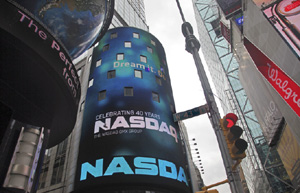 |
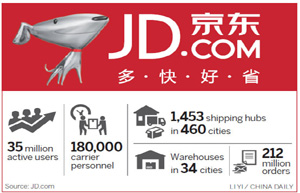 |
| Top 10 largest stock exchanges | JD delivers with 10% increase on Nasdaq debut |
- Dutch dairy companies eyeing growth in China
- China, Italy map out three-year cooperation plan
- Top 10 industries with most generous private employers
- Nanjing 3D street painting sets world record
- China to expand Yangtze transport capacity
- China, US ink deals on energy efficiency
- Alibaba takes giant strides
- China's coffee market taking time to brew
